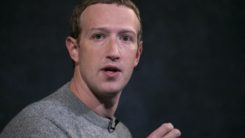Twitter CEO Dick Costolo tells Marketplace’s Jeremy Hobson his company is ‘very, very complementary to the news outlets.’
What is the most important role you think the company is playing in society right now — because it’s playing a lot — and how does that differ from what you would like it to do?
Costolo: I think the role that it’s playing in society right now is that we used to have a filtered, one-way view of events in the world from the media — whether it was a sporting event like the Olympics or an event like the presidential debates last week. America’s perspective of it, or the world’s perspective of that event, would be seen through the lens of the way that the media described it to them. For example, if you think about the debate you would have a guru in the studio next to the news anchor describing what had just happened. Maybe you would even have a couple people in a small room that would discuss what they’d just seen. Now with Twitter, people want to know what everyone else thinks and we’re getting this inside-out, multi-perspective view of what’s going on right now as it happens from everybody else that’s watching the same thing we’re watching. So I think the major transition for society has been one of from a single point of view in a filtered way to a multi-perspective, inside-out, unfiltered view of what people think of the event.
Hobson: So you see it primarily then as a media entity, as something that would compete with the other news outlets that we have?
Costolo: No, I view it as very, very complementary to the news outlets. In fact, one of the things we saw during the Olympics is that Twitter actually — it’s very much our perspective — drove tune-in to the Olympics. The NBC would I believe tell you that it was the highest-rated Olympics in 36 years. Now that was, keep in mind, in a world where people initially were saying on Twitter during the Olympics — how is this going to go well with NBC because people are going to be talking about what’s happening on Twitter during the day when the event’s not on until that night. In fact what was happening was people would see on Twitter something like — wow, the U.S. women’s 4-by-100 meter relay team just broke the world record and then they would make sure they tuned in that night to watch it when they might not otherwise even know that women’s track and field was going to be on that night. So I think it is incredibly complementary to news and media in a way that maybe other technologies haven’t been in the past.





